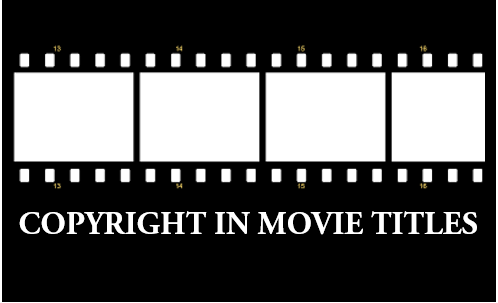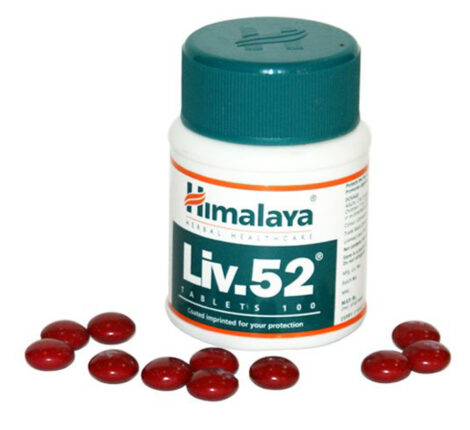Copyright in movie titles
INTRODUCTION
What better way to make a good first impression than with a catchy title? A memorable and unusual title captures the attention of the audience right away. As a result, it is one of the most critical assets of a movie to attract audience attention. The title of a film usually becomes the point of contention in the entertainment sector. The customary practice of most film producers’ is to register the plot and title of the movie with film associations that are registered societies. These registered societies include the Indian Motion Picture Producers’ Association (IMPPA), the Film and Television Producers’ Guild of India, or the Association of Motion Pictures and Television Programme Producers (AMPTPP). Although this protects the plot of the picture, it does not preserve the film’s title from being utilized by another filmmaker.
SECTIONS INVOLVED
Section 13 of the Indian Copyright Act, 1957 defines the classes of work in which copyright subsists, i.e., in original literary, dramatic, musical, artistic works, cinematograph films, and sound recordings. Sub-section 3 of Section 13 of the Act clearly states that copyright shall not exist in any cinematograph film if the substantial part of the film infringes the copyright in any other work.
Section 16 of the Copyright Act, 1957 provides no person shall be entitled to copyright or any similar right in any work, whether published or unpublished, otherwise than under and following the said Act’s provisions or any other law for the time being in force. But nothing in Section 16 of the Act can be construed as abrogating any right or jurisdiction to restrain a breach of trust or confidence.
On reading the two sections jointly, we can understand that protection under the Copyright Act is provided to work relatable to a cinematograph film, i.e., the visual recording, including sound recording, produced by a process analogous to cinematography. Section 13 makes it clear that there is no copyright in a title. The title, which may be a commonly used word, cannot be protected under copyright law. Thus, the entire work is protected by copyright.
CASE LAWS
While the Indian Courts have not specifically pronounced decisions concerning titles of books, recent conclusions on titles of movies offer guidance on the protection for literary titles.
Recently, in Krishika Lulla and Ors. vs. Shyam Vithalrao Devkutta and Ors, the Supreme Court held that copyrights do not exist in the titles of literary works, including movies. The factual matrix of the case is that the respondents claimed having written a synopsis with the title ‘Desi Boys’, which was circulated via email to two other persons. After the movie ‘Desi Boyz’ released, the respondents bought a suit against the appellants for copyright infringement. The issue before the Court was whether the respondents had a copyright in the title of the movie. The Court laid down that as per Section 13 of the Copyright Act, 1957, copyright subsists in an original literary work; therefore, titles cannot be considered as ‘works’ for copyrights. The protection for the same can be granted only by trademarks.
The above judgment does not necessarily mean that a title cannot be a proper subject of protection against being copied as held in Dicks v/s Yates.[1] In this case, the Court observed that there might be copyright in a title, such as a whole page or a full-page title or something of that kind requiring invention.
Various filmmakers have used the titles of previous blockbuster movies in multiple ways to capitalize on their fame and goodwill. In this regard, the case of Sholay Media and Entertainment Pvt Ltd. v. Parag M. Sanghavi[2] is significant. The title of the renowned 1975 film ‘Sholay,’[3] and the characters ‘Gabbar’ and ‘Gabber Singh,’[4] were awarded trademark protection by the Register of Trade Marks. Due to trademark restrictions, the title of ‘Ram Gopal Verma ki Sholay’ was changed to ‘Ram Gopal Verma ki Aag.’ The Court restrained the defendants from using trademarks identical or deceptively similar to the plaintiffs’ since ‘Sholay’ had achieved cult status among movies.
The title of the work plays a crucial role in grabbing the attention of the target base. A fascinating book or movie title may get more takers than work with a mundane title. For this reason, various authors and movie producers tend to seek protection for such titles under the Copyright Act, 1957, or through Film and Television Producers Guild, etc.
In Kanungo Media (P) Ltd v. RGV Film Factory & Ors,[5] the Delhi High Court declined injunction against Defendant for using the brand name ‘Nishabd’, which allegedly was similar to that of the plaintiff’s film. The Hon’ble Court referred to various American Court decisions and observed that the position of the Indian Copyright law is the same. The Court held that if a junior user uses the senior user’s literary title as the title of the work, that by itself doesn’t infringe the copyright of a senior user’s work since there is no copyright infringement merely from the identity or similarity of titles alone.
Similarly, the Madras High Court rejected the injunction application of the plaintiffs to restrain them from using the plaintiff’s film titled ‘Raja Rani’ in the R.Radha Krishnan v. Mr. A.R. Murugadoss & Ors.. The Court emphasized the Kanungo Media case and observed that ‘Raja Rani’ are words of common origin that denote the king and the queen. These familiar words cannot be entitled to protection under the Copyright Law.
The Indian Copyright Act, 1957, per se, does not protect titles or films, books, or songs mainly because the title to work is too short and incapable of being an independent work protectable under the Act. The Madras High Court reiterated this in its recent division bench decision in M/s Lyca Productions & Anr. vs. J. Manimaran. The plaintiff (J. Manimaran) stated that he was producing a film bearing the title ‘Karu,‘ which is the Tamil word for ‘Foetus.’ and claimed to have registered the title of his work with the Film and Television Producers Guild of South India in 2011. The plaintiff accused the defendant (Lyca Production) of producing a film titled ‘Lycavin Karu.’ The defendant contended that the title of his movie was registered with the Tamil Film Producer Council in 2017. The plaintiff submitted that it was standard industry practice to obtain registration for work titles from such Producers guild. Since the plaintiff was the prior registrant of the title ‘Karu,’, the defendant should be injuncted from using a similar heading.
The Single Bench ruled that it is true that simultaneous release of cinematographic films of the same title is likely to cause consumer confusion. Still, the instant case was different, and the release was not simultaneous as the plaintiff’s movie has not been completed. Further, in the absence of any statutory/contractual right, the plaintiff cannot injure others from using a title.
The Court put the reference to Krishika Lulla v Shyam VithalraoDevkatta& Anr. The Apex Court held that a title does not qualify for being described as work as it is incomplete and refers to the work that follows.
CONCLUSION
According to the Nice Classification of trademarks used in India, a person can register movie titles as a service mark under Class 41 of the Indian Trademarks Act, 1999.The movie titles are divided into two categories: titles of a series of films, such as the ‘Dhoom 2 & Dhoom’ franchise, and titles of a single movie. The latter case must prove that the title has gained a reputation and secondary meaning among the general public. The secondary meaning refers to how a typical movie-goer links the title with the filmmaker, production firm, etc. This further leads to confusion if another person uses the title for a different film. Copyright protects the expression of an idea but cannot cover a mere thought under the Copyright Act.
Through the various case laws provided, a clear understanding developed that copyright does not exist over movie titles in India. Moreover, copyrights protect the integrity of creative works of authorship, and titles do not warrant such protection, which has now gained a settled principle of jurisprudence under Indian Law.
References: [1] Dicks vs. Yates, (1881) 18 Ch D 79 [2] Sholay Media and Entertainment Pvt. Ltd. v. Parag Sanghavi, 2015 SCC OnLine Del 11644 [3] Registration No.s 928687 and 966278 in Class 16 and 31 [4] Registration No.s 967058, 967064, 967065 and 96707 in Class 14, 29, 30 and 34 [5] (2007) ILR 1 Delhi 1122
Authored by: Rudraksh Gupta, School of Law, Christ University
Disclaimer: This article is intended to provide general guidance to the subject matter. For any specific advice/corrections, write to [email protected]




